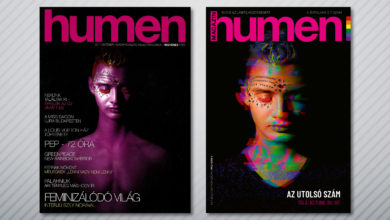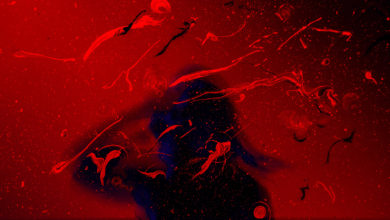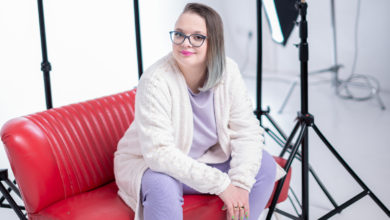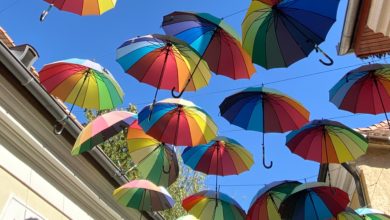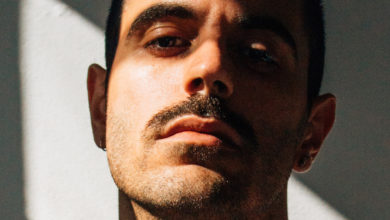The need for a sense of identity in the Hungarian LGBTQ+ community
If I were to ask you what is the local LGBTQ+ community in Hungary like, what would be your answer?
As an expat who has been living in Hungary for almost 8 years, this is something I’ve been asked so many times, but it is still one of those questions that I don’t know how to answer. Mostly because, in my personal opinion, a sense of identity within the LGBT community is something that is still missing from the local scene. Consequently, it is one of the reasons why it is so hard for individuals to find a supportive and welcoming space in which they feel like they belong.
As for me, Spanish and Latin LGBT culture is centered on celebration, joy and an even a cocky way of expressing sexuality; it is almost as if people were trying to show off and be unapologetic for being who they are. Meanwhile, Western European LGBT identities are more about authenticity and individualism, where people don’t feel the need to put themselves in a box and like to enjoy their freedom and use their sexuality for it, resulting in a community of “careless” queer people that need no approval and try to stay away from what the mainstream tells them.
But what can we say about the Hungarian LGBT community and how can we contribute to its development?
The pride of being Hungarian
Before even looking into the LGBT community, it is important to take a glimpse into something that really affects Hungarians – their nationality. While I was giving a lecture to 200 Hungarian university students, I once asked, ‘Who here is proud of being Hungarian?’ Around 20% of the people in the audience raised their hand. When I asked the other 80% to share why they did not take pride in their nationality, the most common answers were the political and economic situation, the comparison between themselves and other European countries, and the overall feeling that, given the social climate, they had no bright future or a reason to be proud for being a member of this nation.

As a short summary for the foreigners reading this, Hungary as we know it today is a relatively new country. Even though the Carpathian Basin has been inhabited by different peoples for thousands of years, the Hungarian state was founded in the 9th century. Hungarian history is full of occupations and wars, not to mention the most recent Communist era, only becoming the republic we know now in 1989 and having only 30 years to stand on its own and really start shaping up as a country.
Based on this, it is no surprise that it’s hard for locals to build a sense of LGBT identity when Hungarian people in general are struggling to find their own sense of pride in their country and where they come from. This is especially true in the past couple of years since queer people have been targeted by the government, further pushing that feeling that this is a country in which they don’t have a future. At the same time, this shows an even bigger need to build up that feeling of community that can give queer people something to hold on to, and more importantly, to feel they have a place where they can belong.
The lack of opportunities for the development of LGBT youth
Many years ago, the LGBT scene in Hungary had a better perception than now. The nightlife was booming, registered partnerships became legal in 2009 and Budapest even hosted EuroGames (a European LGBT sporting event) in 2012. Back then, the political strategy of using queer people for fearmongering was not a thing in Hungary, in fact, it was simply a topic that was “hidden under the carpet” as I like to say it. But in recent years the quality of opportunities for young people to explore and discover their sexuality has been decreasing both in quality and in quantity.
One of the most important ways for people to discover themselves is being exposed to different environments in which they can try themselves, discover new things and build their own preferences and personality according to new experiences… Unfortunately, this is something currently unavailable to most of Hungarian LGBTQ+ youth, even if they live in the capital. There is no local scene, LGBT organizations struggle to find support to provide community spaces, and the ongoing pandemic isn’t making things any better with the few venues we had having to close permanently.
As a consequence, we see a local scene that is only working from the outside in, meaning that it’s mostly influenced from the outside instead of growing from the inside. You’ll find the local tribes trying to imitate the “London/Paris scene”, the “Berlin scene”, etc.; while forming no sense of individual identity based on self-awareness and self-discovery.
There is no “community” in LGBT community
Although the previous part was about how there is a lack for development and self-discovering opportunities for LGBTQ+ people in Hungary, it isn’t entirely because people aren’t trying to make them. Which brings us to something that is both cause and consequence of that missing sense of local community: a lack of support.
When talking to locals, it often comes up how despite not being satisfied with the local scene, people never donated to an organization working for the community, never supported queer artists or entrepreneurs, or volunteered for projects aiming to improve the life of LGBT people in the country. For most Hungarians, the only way in which they participate in the local scene is by attending parties.
It is a never-ending cycle in which people don’t have the sense of ownership and responsibility to support each other, causing the local LGBT community to remain stuck without progress, resulting in an absence of a local identity.
So, let’s circle back to the question of how we can help make the change happen. Unfortunately, this is a matter in which a cultural change is needed and plenty of factors come into play, but I’d say creating awareness around this is a first step to encourage each other to donate, volunteer, and attend events that are not just parties. Let’s motivate people to be supportive, to continue creating, to find opportunities to discover and try new things.
We need a sense of unity and identity. We need initiatives that build our community from the inside out.
Please note that this article is simply my personal opinion of one of the main reasons why the Hungarian LGBTQ+ community isn’t thriving based on my personal experiences. But I’m aware there might people who might disagree, and for that I only have one thing to say: let’s go for a coffee! Or you can reach me on Instagram (@germanhenao). That is part of what we need, discussions, conversations and different points of view on how we can help our community grow. I would love to hear from you, and I invite you to do the same. <3
German Henao


